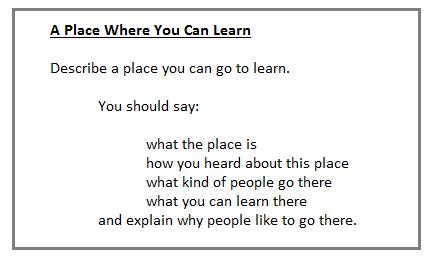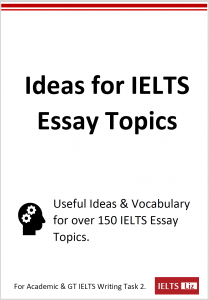In speaking part 2, you will be given a topic, 1 min to prepare and then you will need to speak for between 1-2 mins. The examiner will not move on to part 3 until 1 minute has passed of your talk and the examiner will stop you at exactly 2 minutes to prevent you speaking further. So, this means you have between 1 and 2 minutes available to you for your talk.
Speaking part 2 is the only part of the test where you can show the examiner that you can speak at length. So, if you are aiming for a higher score, this is a great opportunity to impress the examiner with fluency.
However, if you run out of things to say after 1 minute then tell the examiner you have finished so that the examiner can move on to the next part of the test. You can say ‘I’ve finished’.
Here are some more points to consider:
- It is better to give a strong, fluent talk for 1.5 minutes than a weak, hesitant talk for 2 mins.
- You can still get a high score if you only speak for 1.5 minutes but only if the quality of your talk is very good.
- The criterion of fluency accounts for 25% of your marks and is taken from your overall performance in all parts not only in part 2.
- If you wish to lengthen your talk, then add more information. The prompts (the points on the topic card) are only guidelines – you can and should expand on each one.






